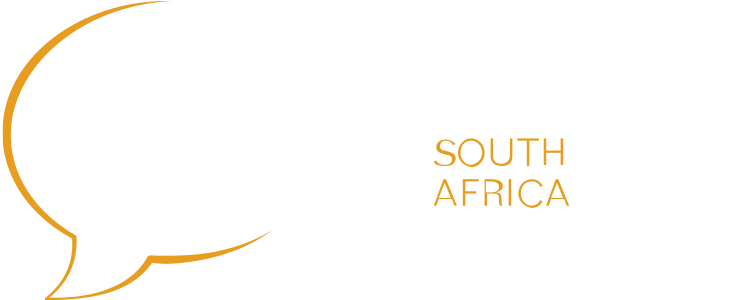The telos of UCT Faculty of Health Sciences: truth or social justice?
“The conflict between truth and social justice is likely to become unmanageable. Universities will have to choose, and be explicit about their choice, so that potential students and faculty recruits can make an informed choice. Universities that try to honor both will face increasing incoherence and internal conflict”. − Jonathon Haidt: “Why Universities Must Choose One Telos: Truth or Social Justice”.
In November 2024 the University of Cape Town (UCT) Faculty of Health Sciences (FHS) hosted a two day in-person “LGBTQIA+ Health and Advocacy Symposium”. The symposium was facilitated by the Desmond Tutu Health Foundation (DTHF) and the UCT FHS, in partnership with a range of civil society organisations, including Triangle Project, GenderDynamiX, and Inclusive and Affirming Ministries (IAM).
The goal and proceedings of the symposium were made public in a blog titled “Nurturing space for evidence-informed care for LGBTQIA+ persons”. The blog appeared on the website of Sexual and Reproductive Health Matters (SRHM), a London-based organisation. The blog is co-authored by two leading UCT academics, A/Prof Tracey Naledi, UCT FHS Deputy Dean, and Prof Linda-Gail Bekker, director of the DTHF, and a leading South African HIV scientist. The blog reads like a call to action, a public declaration of policy and aims, to be implemented by the National Department of Health:
“The symposium had a bold vision of ‘working towards an accountable, inclusive South African health system that fully integrates LGBTQIA+health into national politics and health service provider education, and actively engages and empowers marginalised LGBTQIA+ communities to guarantee equitable access and inclusive care for all LGBTQIA+ individuals.”
At human rights and policy levels, the South African health system is already inclusive, non-discriminatory and is grounded in the principle that all citizens – including all those encapsulated in the LGBTQIA+ grouping – should have equal and appropriate access to all levels of care. Although the term LGBTQIA+ is used in the symposium title and the SRHM blog, the programme focused on ‘gender-affirming care’ for people identifying as ‘transgender’, the T in the LGBTQIA+ collection, while the specific needs of the LGB community were not addressed.
The primary aim of the symposium was to embed on demand, state funded ‘gender-affirming care’ (GAC) for those who identify as transgender and non-binary into the South African health care system, and to have ‘GAC’ taught as part of the medical curriculum. The blog reads:
“A key moment from the symposium was an engaging panel that brought together views … to discuss the importance of making universal health care inclusive and responsive to the needs of LGBTQIA+ communities. This dialogue highlighted both the opportunities and challenges in ensuring equitable access to appropriate and affirming health services within the envisaged National Health Insurance.”
In South Africa, the primary reference document for providing ‘GAC’ is the Southern African HIV Clinicians Society (SAHCS) Gender-Affirming Healthcare Guideline (GAHG) for South Africa, published in the Southern African Journal of HIV Medicine in September 2021. The lead authors of this guideline are members of the Professional Association for Transgender Health SA (PATHSA), a prominent organisation at the symposium.
According to the Southern African HIV Clinicians Society guideline, core components of ‘GAC’ include:
- Social affirmation of a cross-gender identity at any age, including pre-school children,
- Interventions such as breast binding and tucking of the scrotum and penis,
- The use of drugs to block normal puberty (PBs) in children,
- Administering cross-sex hormones (CSH), and
- ‘Surgery’ such as bilateral breast amputation and amputation of the penis, creating false vaginas and penises to “align” a person’s body with their “gender identity”.
Doctors and other care providers are advised not to question a person’s gender identity and to agree to their requests for these extreme interventions. Not doing so is regarded as ‘gatekeeping’ and ‘conversion therapy’.
This ‘GAC’ guideline is a curious departure from the excellent HIV-related work of the SAHCS. It is good medical practice, not gatekeeping or conversion therapy, to take a careful history, do a thorough examination, interpret findings into a careful assessment, and develop a considered evidence-based treatment plan in conjunction with the patient. Patients with gender distress or dysphoria should be provided with this same standard of care, not unquestioning ‘GAC’. An independent review of the SAHCS GAHG performed by epidemiologists at York University as part of the Cass Review concluded that its recommendations should not be followed. The guideline draws heavily from recent World Professional Association for Transgender Health (WPATH) guidelines which contain multiple circular references, are based on poor quality evidence, and have also been assessed as being of very low standard.
Academic leadership?
UCT’s FHS has adopted a self-proclaimed leadership role in advancing the transgender ‘GAC’ agenda. In addition to hosting and supporting the meeting, the blog notes that this is “positioning UCT as a leader in inclusive care” and that “the academy provided courageous and important leadership in stewarding and curating an excellent space for the sharing and engaging of evidence to inform care. This achievement is a potential model for advancing LGBTQIA+ healthcare in South Africa, marked by meaningful collaboration among academic institutions, government, and civil society.”
The UCT FHS’s intent is further made clear in its employment of a Gender and Sexual Diversity Advocate in 2023, who is also a co-author of the blog.On 4April 2024, the FHS hosted a “Transgender and gender-affirming healthcare panel discussion”.
The UCT FHS prides itself on being the top medical school in Africa. While it is at liberty to champion whatever causes it finds important, it has a responsibility to provide high-level academic and scientific leadership, fostering academic discourse and meticulously ensuring the well-being and safety of all children, adolescents and young adults. However, this does not seem to be the case when it comes to ‘GAC’.
Over the last four years there has been tremendous debate around the benefit and harms related to ‘GAC’. The WPATH, and by extension PATHSA and SA HIV Clinicians Society guidelines which promote ‘GAC’ have been extensively critiqued for their poor evidence base, questionable benefit and clear harms. WPATH lost all credibility after the release of the WPATH Files (internal communications which revealed corrupt practices), and more recent internal communications which reveal political interference in the organisation. The WHO has not produced international guidelines regarding ‘GAC’ for children or adolescents. National health authorities in Sweden, Finland, and the UK rejected this model, and have now adopted standard mainstream medical, psychiatric and psychological care, rather than biologically implausible and unevidenced puberty blockers, cross-sex hormones and breast and genital surgery. Most recently, on 1 May 2025, the U.S Department of Health and Human Services released “Treatment for Pediatric Gender Dysphoria Review of Evidence and Best Practices”, an in-depth, comprehensive review which makes clear that the ‘GAC’ provided in many U.S. clinics is not evidence-based and causes harm. Within South Africa, these concerns have been raised in various articles in the mainstream media as well as peer-reviewed medical journals.
When First Do No Harm SA (FDNHSA), a voluntary association of professionals concerned about the poor evidence base for the medicalisation of children and adolescents who have gender distress, approached UCT FHS in April 2024, requesting engagement and dialogue, an email response was received from the Gender and Sexual Diversity Advocate, which stated, “ … I point blank refuse to be engaged in any of the following (which has already come up):
- Gatekeeping of healthcare
- Individuals and groups who are attempting to save ANY marginalised groups from themselves
- Evidence and investigation that privileges academia above all else, including lived experience
- Narrow and colonial views of gender (this includes using the binary to “diagnose” gender incongruence and hence gatekeeping care)
- Approaches that do not make use of gender self-determination (much related to the previous point)
- Misinformation and outdated information
Rather than acknowledging and engaging with ‘GAC’ concerns, working towards presenting diverse perspectives, fostering academic discourse, and providing a platform for engaging conversations among presenters, a UCT FHS panel discussion on 4th April 2024 only included persons who affirmed ‘GAC’, while questions from the audience on the evidence supporting ‘GAC’ elicited hostile responses from the panel. In the SRHM blog, the most rigorous and thorough review of ‘GAC’ (the UK’s Cass Review) was pejoratively misrepresented: “…controversial health system and economic reforms [that] have led to the unfortunate dismantling of care in the UK for transgender and gender diverse individuals”.
In a transparent and disingenuous attempt to avoid responding to the weight of evidence critical of ‘GAC’, the authors of the blog chose to refer to “evidence-informed care” rather than evidence-based care. UCT FHS needs to affirm that the foundation of health science education has a solid evidence base.
Quo Vadis UCT?
In philosophy, telos refers to the goal or purpose of something. A doctor’s telos is health or healing while the telos of a scalpel is to cut. The telos of a university should be ‘Truth’, and for its health science faculty, it is surely that of ‘Finding Medical Truth’. Finding medical truth, through a rigorous scientific method, and using the best available evidence to inform the teaching of undergraduates and postgraduates contributes to the medical knowledge used to improve the health and well-being of individuals and society.
As with many universities in the Global North, it would seem that UCT FHS has made social justice its primary telos, at the expense of medical truth. By endorsing ‘GAC’ enthusiastically and unquestioningly, the UCT FHS would have us accept that it is appropriate to remove the healthy breasts of a young woman who has gender-related distress, at her request. It is telling that the response to a request to discuss the safety of vulnerable children and adolescents with the faculty, was informed by a non-medical Gender and Sexuality Diversity Advocate, who explicitly minimised the role of academic evidence and investigation. FDNHSA has been attempting to engage with senior members of the UCT FHS since April 2024, and to date they have yet to respond affirmatively to suggestions of hosting a discussion at the faculty that includes diverse opinions on the issue of the evidence-base for ‘GAC’.
The UCT FHS and the broader UCT community, using its own exemplary standards of academic discourse and scientific process, would do well to carefully reflect on the philosophical, social and medical content of what is being propagating and promoted, through ‘gender affirming care’, for children, adolescents and young adults with identity confusion and distress. By uncritically supporting this symposium and joining in the publication of the blog, senior members of the UCT FHS are placing young people at risk of very serious and permanent harm. The treatises, conventions and rights cited in the blog to advocate for ‘GAC’ should be used to protect children from the harm caused by ‘GAC’.
Truth allows us to understand what is real, and in medicine, getting reality wrong exacts a very high price − the medical profession’s experience with blood-letting, thalidomide, mercury, and lobotomies are examples of this. And as GK Chesterton wrote, “Fallacies do not cease to be fallacies because they become fashions.”
What will it mean for UCT FHS, patients, students and the community, if it fails to return to its true telos?
“The Party told you to reject the evidence of your eyes and ears. It was their final, most essential command.” − George Orwell, 1984
*I wrote this article in collaboration with Dr Allan Donkin and Dr Reitze Rodseth.
This article was first published on the Daily Friend.

